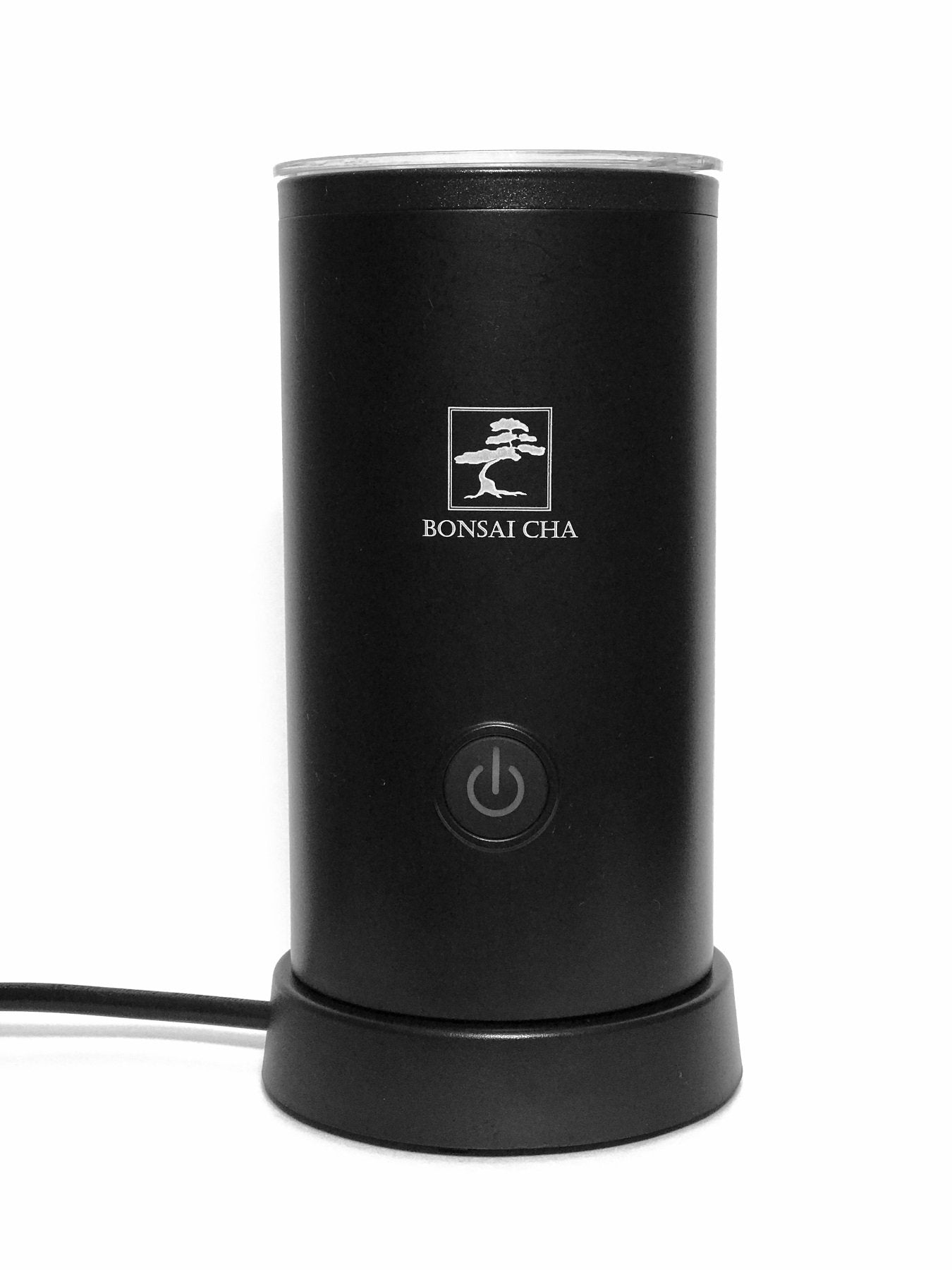
· By Avery Hastings
Why Does Tea Make Me Nauseous? Can Matcha Tea Cause Nausea?
Can Matcha Tea Cause Nausea?
Have you ever sipped on a delightful cup of matcha, only to find yourself feeling queasy afterward? Do you ever wonder why matcha makes you feel sick sometimes? If you've experienced this unsettling sensation, you're not alone. Many individuals have wondered why green tea makes them feel nauseous. In this blog post, we will explore the potential causes of why matcha causes nausea and provide insights to help you enjoy matcha without the discomfort.
Matcha, a vibrant green powdered tea, has gained immense popularity for its distinct flavor and numerous health benefits. Rich in antioxidants and renowned for its ability to enhance focus and promote relaxation, matcha has become a favorite among tea enthusiasts. However, it's essential to recognize that our bodies react differently to various substances, and matcha may not sit well with everyone.
Why Green Tea Makes You Nauseous Sometimes
When it comes to understanding why matcha causes nausea, several factors come into play. Let's delve into these factors to shed light on this intriguing relationship.
Caffeine Sensitivity or Intolerance: Matcha contains caffeine, a natural stimulant that can affect the nervous system. Individuals with caffeine sensitivity or intolerance may experience symptoms like nausea, jitters, or an upset stomach when drinking matcha. It's important to note that matcha contains less caffeine than coffee but more than regular green tea. If you suspect caffeine sensitivity, it may be worth trying decaffeinated matcha.
Tannins and Catechins in Matcha: Matcha is rich in tannins and catechins which have been associated with digestive issues, leading to the misconception that tannins may be bad for you. Excessive consumption of tannin-rich beverages like matcha can sometimes lead to nausea or an upset stomach. Moderation is key when enjoying matcha to minimize the potential impact of tannins.
Theanine and Its Impact on the Digestive System: Matcha contains an amino acid called theanine, which promotes relaxation and helps counterbalance the stimulating effects of caffeine. While theanine is generally well-tolerated, some people may experience nausea due to the interaction between theanine and their digestive system. Discovering your own tolerance for theanine can assist in finding the right matcha experience for you.
Differences in Individual Tolerance and Reactions: Our bodies are unique, and what works for one person may not work for another. The occurrence of matcha-induced nausea can vary from person to person based on factors such as overall health, individual sensitivities, and genetic makeup. It's crucial to listen to your body and recognize your limits to create a matcha routine that suits your needs.

How Tannins and Catechins Can Make You Nauseated
The Presence of Tannins and Catechins in Matcha: Matcha is rich in tannins and catechins, plant compounds that contribute to its unique flavor profile and potential health benefits. Tannins are naturally occurring polyphenols found in various beverages, including tea. While they have antioxidant properties and may offer health advantages, excessive consumption of tannins can sometimes lead to digestive issues, including nausea.
Understanding Tannins: Tannins are a class of compounds found in plants, particularly in the leaves, bark, and fruit skins. They possess astringent properties and can bind to proteins, which contributes to the drying and puckering sensation often experienced when consuming tannin-rich substances. In the case of matcha, excessive intake of tannins may overwhelm the digestive system, potentially causing nausea or an upset stomach.
How to Prevent Nausea When Drinking Tea or Matcha
Control Serving Size: Pay attention to the amount of matcha you consume in a single serving. By controlling your serving size, you can moderate your intake of tannins and catechins, reducing the risk of nausea when drinking tea. Start with a smaller serving and gradually increase it based on your individual tolerance.
Avoid Consuming Matcha on an Empty Stomach: Drinking matcha on an empty stomach can potentially exacerbate the effects of tannins and catechins, leading to an increased likelihood of experiencing nausea. Instead, have a light snack or a meal before enjoying your matcha to prevent nausea. This helps buffer the impact of the plant compounds on your stomach and may alleviate digestive discomfort. Or you can try consuming starches, eating some ginger or drinking baking soda and water.
Consider Blending Matcha with Other Ingredients: Blending matcha with other ingredients can help balance the flavors and potentially mitigate the impact of tannins. For example, adding a splash of milk or a dairy-free alternative can create a creamy texture and mellow out the astringency of the matcha and you can make the perfect matcha latte. Experiment with different matcha drinks or mix matcha into different recipes to find combinations that suit your taste preferences while minimizing the risk of nausea.
Quality Matters: The quality of matcha can also play a role in the intensity of its tannin content. Higher-quality matcha, such as ceremonial grade matcha, is often milder and smoother in flavor, indicating a lower tannin content. Opting for high-quality matcha may reduce the risk of experiencing matcha-induced nausea.

The Soothing Power of Theanine: Balancing Digestive Effects
Matcha is known for containing the amino acid theanine, which contributes to its unique taste and potential health benefits. Theanine is primarily found in tea leaves and is responsible for the umami flavor and calming effects associated with matcha consumption. It acts as a relaxing agent, promoting a sense of calmness without causing drowsiness.
Calming the Digestive System: Theanine has been shown to have various effects on the body, including its ability to promote relaxation and reduce stress. In the context of matcha-induced nausea, theanine's calming properties can help alleviate digestive discomfort by reducing the overstimulation of the digestive system.
Balancing the Effects of Caffeine: Theanine has a unique relationship with caffeine. While matcha contains caffeine, the presence of theanine in matcha helps modulate its effects. Theanine works in synergy with caffeine to promote a state of relaxed alertness, preventing the jittery and anxious feelings commonly associated with caffeine consumption alone. By balancing the stimulating effects of caffeine, theanine can potentially minimize the risk of nausea and other digestive issues.
Enhancing the Matcha Experience
To optimize the soothing effects of theanine and enhance your matcha experience, consider the following tips:
Mindful Preparation: Take the time to prepare your matcha mindfully. Engaging in a ritualistic matcha preparation can create a sense of calm and anticipation, allowing you to fully appreciate the relaxing properties of theanine.
Matcha and Meditation: Consider incorporating matcha into your meditation practice. The combination of theanine's calming effects and the focus of meditation can create a harmonious experience that promotes overall well-being.
Sip and Savor: Instead of rushing through your matcha, take slow and deliberate sips, allowing the flavors and theanine to work their magic on your senses. Pay attention to the subtle nuances and appreciate the experience as a whole.
Remember, theanine's presence in matcha contributes to its unique character and potential digestive benefits. By leveraging the soothing power of theanine, you can create a more harmonious matcha experience and potentially reduce the likelihood of experiencing nausea.

The Final Verdict
In conclusion, it's important to recognize individual sensitivities when consuming matcha and take steps to manage and minimize the risk of nausea when drinking tea. Start with small amounts, choose high-quality matcha like Bonsai Cha, and pair it with food to buffer the effects on the digestive system. Listen to your body, adjust your consumption accordingly, and experiment with different preparation techniques.
Remember, each person's experience with matcha can vary, so find an approach that works best for you. By understanding your sensitivities and implementing these strategies, you can enjoy matcha without discomfort. Cheers to a delightful and nausea-free matcha journey!
2 comments
-
You’re welcome! We glad you found it helpful. :)
Avery Hastings on
-
Thank you for this informative article! It had clarified my queries around having nausea after drinking matcha tea!
I will continue to experiment, as I understand the benefits outweigh the negatives!Best,
Judith LePage
Judith on

